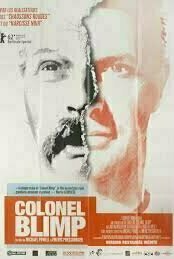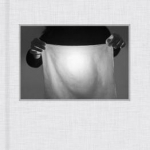
Gutter 16: The Magazine of New Scottish Writing
Book
Gutter magazine is the outstanding independent literary magazine publishing fiction and poetry from...

The Everyday Poet: Poems to Live by
Book
A thoughtful and varied collection of feel-good poems perfect for any day and any situation. This...
John Taylor recommended The Life and Death of Colonel Blimp (1943) in Movies (curated)
Contours of the Nation: Making Obesity and Imagining Canada, 1945-1970
Book
The obesity epidemic that is said to plague nations around the world, including Canada, is not...

Love on the Edge (Mindful Writers Retreat Series #3)
Book
Experience love’s emotional gamut from the authors of Mindful Writers Retreat, sure to bring joy...
Love Short stories Poems Romance

Doctor Who - Season 4
TV Season
The fourth season of British science fiction television series Doctor Who began on 10 September...

Criminal Minds
TV Show Watch
An elite squad of FBI profilers analyzes the country's most-twisted criminal minds, anticipating the...
Suswatibasu (1703 KP) rated The White Book in Books
Jan 3, 2018
Unlike @The Vegetarian: A Novel and @Human Acts, this book is not designed to have the narrative reach of those two novels. Instead, it is a fragmented meditation on the death of the unnamed baby sister, who died two hours after her birth. Han wisely gives as much value to those heightened two hours of life as she does to her death. The story of her birth, as narrated from the point of view of the mother, who is 22 when she is obliged to deliver the premature baby herself, is simply told.
The book is structured around the white things that become part of the rituals of mourning and remembering. The dominant theme is of transience, of fleeting life and the acceptance of human fragility. It feels mysterious and abstract at time, which seems to reflect the death itself. Hats off to Han Kang and @Deborah Smith for another wonderful translation.

Wait For Me!: Memoirs of the Youngest Mitford Sister
Book
Deborah Devonshire is a natural writer with a knack for the telling phrase and for hitting the nail...

Denial: Holocaust History on Trial
Book
Previously published under the name: History on Trail: My day in Court with a Holocaust Denier In...


